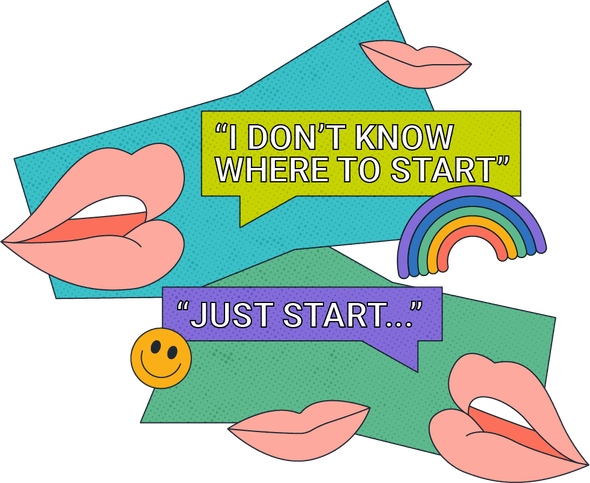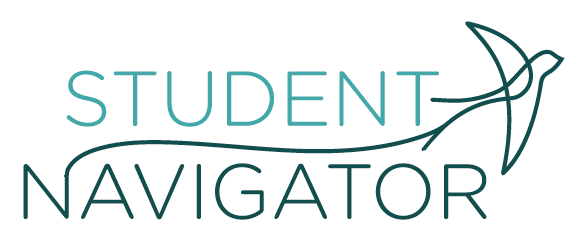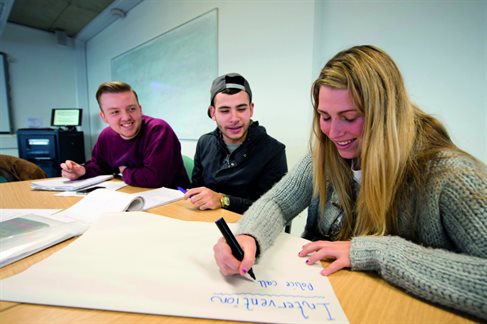

A Step-By-Step Guide to Writing the UCAS Personal Statement
The first step to a good UCAS Personal Statement is to have chosen the subject you are applying for, consistent across the (up to) five choices you have. Often, when students struggle, it is because they are trying to make the statement work for a couple of different subjects. With a clear focus on one subject, the statement can do the job it is supposed to do. You are limited to 47 lines or 4000 characters, so this has to be concise and make efficient use of words.
To work out what information to include, my favourite brainstorming activity is the ‘Courtroom Exercise’. Imagine that you are prosecuting a case before a judge, and the case is that should be admitted to a university to study the subject you choose. You have to present your case, with evidence, to the judge, in a 47 line or 4,000 character statement. The judge won’t accept platitudes or points made without evidence, she needs to see evidence. What evidence will you present in your statement?
In a good statement, you will make an opening and a closing point. To open your argument, can you sum up in one sentence why you wish to study this subject? Can you remember where your interest in that subject started? Do you have a story to tell that will engage the reader about your interest in that subject?
Then you will present a number of pieces of evidence, laying out in detail why you are a good match for this subject. What activities have you done that prove you can study this subject at university?
Most likely, you will start with a class you took, a project you undertook, an internship you had or an extra-curricular activity that is directly relevant. For each of this activities, you need to then write a paragraph following the ABC approach:
A: What is the a ctivity?
B: How did it b enefit you as a potential student for this degree course:
C: Link this benefit to the skills needed to be successful on this c ourse.
With three or four paragraphs like these, each of about 9 or 10 lines, you have the bulk of your statement done. Typically two of these will be about classes you have taken at school, and two about relevant activities outside of school.
In the last paragraph, you then need to demonstrate wider skills that you have, which you can probably do from your extra-curricular activities. How do you show time management, or perseverance, or teamwork? Briefly list a few extra-curricular activities you do and identify the relevant skills that are transferable to university study.
Finally you close your argument, with a brief restatement of your points and a closing sentence linking to your desire to study this subject for the next three or four years of your life. Case closed!
Recent Posts
- Podcast Episode 77: Rugby at universities in the USA
- US College Sports: Eligibility
- Navigating UK Foundation Programmes
- Applying to Australian Universities from the UK with an Australian passport
- Universities in Singapore and Hong Kong: what you need to know

[email protected]
+44 (0) 7392 846307, useful links, privacy policy, services for.
- Universities
- Success Stories

- Impartiality Statement
- For Students
- For Parents
- For Schools
- For Universities

How to write a UCAS personal statement

Writing a great personal statement
Read our guide on what it is, what to include, how to start, length and what makes a good personal statement
Once you've decided which universities and courses to apply for, completing your application is pretty simple – until it comes to how to write your UCAS personal statement.
This guide covers everything you need to know about how to write a personal statement for university. We look at what it is and how you can start your personal statement. We've also got questions to guide you and a suggested personal statement structure you can use so you know what to put in it.
If you'd like even more resources, support and UCAS personal statement examples, you can sign up to access our personal statement hub .
What is the UCAS personal statement?
How universities use your ucas personal statement, how to start a ucas personal statement.
- Get feedback on your UCAS personal statement
The personal statement is part of your UCAS application. It's how you show your chosen universities why you'll make a great student and why they should make you an offer.
Your personal statement also helps you think about your choice of course and your reasons for applying, so you know you’ve made the right decision.
Get feedback on your personal statement
Sign up to our personal statement hub to get feedback on your draft. You'll also get access to videos, help sheets and more tips.
Sign up now
UCAS personal statement word limit
Your personal statement length can be up to 4,000 characters long.
This may sound a lot, but it's a word limit of around 550–1000 words with spaces and only about 1 side of typed A4 paper.
You need to keep it concise and make sure it's clear and easy to read.
Applying for multiple courses
Although you can apply for up to 5 courses on your UCAS application, you can only submit 1 personal statement. So it needs to cover all your course choices.
If you really want to show your commitment to applying for different courses, we will accept a second personal statement from you to reflect your application e.g. if you are applying for Law elsewhere, but Criminology and Criminal Justice with us.
Lots of students who apply to university have achieved the basic entry requirements and many more students apply than there are places available. Admissions teams can use your UCAS personal statement to get to know you and decide why you're more suitable than other applicants.
Some universities read every personal statement and score them. Then they use them alongside your qualifications and grades to decide whether to offer you a place or interview. Other universities put less emphasis on the personal statement and use it with students who have borderline entry requirements.
Universities might refer to your personal statement again on results day if you don't get the grades you need. So a good personal statement could clinch you a uni place even if your grades aren't what you hoped for.
Starting your personal statement can seem scary when you're staring at a blank screen. But, things will seem less daunting once you start.
- Set aside some time in a place where you're comfortable and won't be disturbed. Grab a notepad or computer.
- Write down anything and everything that's influenced your decision to go to university and study your chosen subject. Jot down your skills and experience too.
- Use the questions below to guide you. Don't worry about the personal statement length at this point – you can cut things out later.
When to start your UCAS personal statement
Ideally, you want to leave yourself plenty of time – a few weeks or even months – to plan and write your personal statement.
Try not to leave it to the last minute, as tempting as this may seem when you've got so many other things to think about.
Questions to guide you
Your motivation.
- Why do you want to study at university?
- Why do you want to study this subject?
- How did you become interested in this subject?
- What career do you have in mind after university?
Academic ability and potential
- How have your current studies affected your choice?
- What do you enjoy about your current studies?
- What skills have you gained from your current studies?
- How can you demonstrate you have the skills and qualities needed for the course?
- What qualities and attributes would you bring to the course and university?
Your experience
- What work experience (including part-time, charity and volunteer work) do you have and what have you learnt from it?
- What positions of responsibility have you held? (For example, prefect, captain of a team or member of a committee)
- What relevant hobbies or interests do you have and what skills have they helped you develop?
- What transferable skills do you have, such as self motivation, team working, public speaking, problem solving and analytical thinking?
Research and reading
- How do you keep up with current affairs or news in your chosen subject?
- What journals or publications relevant to your chosen subject do you read?
- Which people have influenced you, such as artists, authors, philosophers or scientists?
Now it's time to write your personal statement using your notes. It's best to draft it on a computer, and remember to save it regularly.
You can copy and paste it into your UCAS application when you're happy with it.
Personal statement structure
While there's no set template for a personal statement, you may find it useful to follow this personal statement structure when you decide what to put in your statement.
What to include in a personal statement
- Reasons for choosing this subject(s)
- Current studies and how these relate to your chosen subject(s)
- Experiences and how these relate to your chosen subject(s)
- Interests and responsibilities and how these relate to your chosen subject(s)
- Your future after university
- Summary including why you'll make a great student
Further tips for a good UCAS personal statement
- Use information on university websites and the UCAS website. This often includes the skills and qualities universities are looking for in applicants
- Ask friends, family and teachers to remind you of activities you've participated in. They might remember your successes better than you do
- Don’t include lists in your application, like a list of all your hobbies. Focus on 1 or 2 points and talk about them in depth to show their relevance to your application
- Explain and evidence everything. It’s easy to say you have a skill, but it's better to demonstrate it with an example of when and how you’ve used it
- Avoid clichéd lines such as ‘I've always wanted to be a teacher’ as it says nothing about your motivations or experiences
- If you’re applying for a joint degree or different subjects, give equal time to each area and try to find common aspects that show their similarities
- Never lie or plagiarise another statement – you'll be caught and it could result in your application being automatically rejected
- Proofread your personal statement by reading it out loud and ask friends, family or a teacher to check it for you
Sign up to our personal statement hub
Watch videos, get top tips and download our help sheets – that's what our personal statement hub is for. It's for you to write your story, so you can show your strengths, ideas and passion to your chosen universities.
You'll also be able send us your draft, so you can get feedback and feel confident about what you've written.

Gold rating in national assessment of teaching excellence
Our TEF Gold rating ranks Portsmouth amongst the top universities in the UK for teaching.
Find out more
Navigate the Ultimate Guides
IS UNIVERSITY WORTH IT?
Finding an apprenticeship, finding your passion, make the most of clearing.
USING THE LEAGUE TABLES
CHOOSING YOUR GCSE SUBJECTS
Results day.
HOW TO DECIDE YOUR NEXT STEPS
WRITING A PERSONAL STATEMENT
Picking your degree, degree apprenticeships vs traditional degrees, making smart financial decisions, taking a gap year.
CHOOSING WHAT TO STUDY AFTER GCSES
FINDING WORK EXPERIENCE
Going to a ucas discovery exhibition.
LIFE AFTER your UCAS DISCOVERY EXHIBITION
USING THE LEague tables
How to decide your next steps, choosing what to study after gcses, life after your ucas discovery exhibition, how can i make it great, so, how do i tackle this, what do i need to remember, who am i writing it for, writing a personal statement.
Always write in a way that's true to yourself, but remember there’s someone on the other side of the paper reading what you’ve got to say.

Jane Marshall, Director – Optimising Futures
What can I start doing now?
Organise your choices in the UCAS Hub.

Don't fret.
Here are some key points to keep in mind:
Be you — you’re great.
Discover the UCAS Hub
See your opportunities. Organise your choices.

Writing a personal statement takes practice. You’re putting yourself out there in a way that you’ve probably not had to do before. It’s both an art and a science, and the topic is YOU. With a bit of planning, it’s not just doable but a really good experience in learning about yourself.
So, how do you begin to sell yourself to someone you’ve never even met?
The short answer: With confidence and a bit of structure.
The longer answer: An admissions officer or hiring manager is looking to see what kind of person you are and why you want to do something. It’s not just what you say, but how you say it, why you think it’s important, and what you’ve done to show it. Don’t be afraid to share those ambitions and interests. Let them out!
My advice is to always think carefully about the course you want to study and if it’s something you find interesting.

Start with who you are as a person, your skills and interests, and why a subject or apprenticeship matches you. End it with how you hope this will influence the future, small or big, it’s the beginning step of something great.
Be authentic
No one knows you better than you know yourself, so show your interests, achievements, goals and personality.
Don’t get stuck in cliches like “I’ve always wanted to…” It’s not about the goal — your ambition is real and important. Tell them the why and why it matters to you.

Talk about your experiences and what they’ve meant to you. No two people have lived the same life and that makes your perspective unique.
You’ve 4,000 characters, which seems like a lot until it’s not enough. Before you start, set out the points you want to make, and work out what you need to say in order to land your point.
There’s no way like just starting, and once you get into it, the less awkward it is.
Your first draft won’t be your final draft, so don’t be discouraged if it doesn’t immediately come together.
“You are you.
Now, isn’t that pleasant?”

If you’re stuck, talk to someone. Friends, parents, teachers — they all see you in a different light.
Speaking to them can help you get an idea of some of your best qualities and how much you’ve grown.
It’s easier to write about yourself when you’re talking about things you’re passionate about.
If you love reading, building things, understanding why things are — then let it show.

Give yourself time
Explain the why
Don’t be shy
Talk about the future
Walk away from your computer for a day or two. Come back and ask yourself, “Can I say this in a more direct way?” If you can, then change it.
Do you love reading? Interested in sustainability? Ask yourself why you’re drawn to something and share it.
In or out of school. Climbed mountains? Part of a local climate change group? Chief recycler in the house? Think about including these — they say a lot about who you are.
Even if you’re still figuring things out, how you want to be contributing to the world or what you want from it is great to share.
Oh, and remember: you won’t be able to submit your personal statement if it’s over the word limit — the system literally won’t let you. Happy writing.

- Current students
- New students
- Returning students
- Support for current students
- Semester and term dates
- Policies and regulations
- Online learning tools
- Your feedback
- Studying off campus
- Results and graduation
- Student Portal
- Student handbook
- Student news

How to write a great UCAS personal statement
What is a personal statement.
The personal statement is the most important part of the UCAS process. It is your opportunity to explain why you have picked the subject you want to study and demonstrate your personality, passion and knowledge about your chosen subject.
Although your personal statement is the most important part of your application, it can also be the most difficult to put together. Writing your personal statement requires you to think seriously about your goals and aspirations. You might even change your mind about these as you are putting together your statement. However, this is a key part of working out what you want to do in the future.
How long can my personal statement be?
Your personal statement can be up to 4,000 characters (including spaces) or 47 lines of text long – whichever comes first.
Seven tips for writing a great UCAS personal statement

1. Do your research
You can use websites such as the National Careers Service to research the sort of jobs you would enjoy and the recommended routes into those careers. The UCAS website features details about every UK university course. Use this to find out subject specifics such as minimum entry requirements, available additional funding, career prospects and more. Visit campus open days and take the opportunity to speak with lecturers and see university facilities in person.

2. Take your time to plan and draft
A good personal statement cannot be written the night before. Take your time to plan what you want to say, and use multiple drafts to make sure you say it in the right way. As well as this, make sure you have enough time before the deadline to give yourself a break before rereading and sending off your statement. Taking a break can help you notice things you might not otherwise see and catch mistakes that might otherwise damage your chances of success.

3. Show off your personality
Hundred of thousands of students apply through UCAS every year — but only one of them is you. Your personal statement needs to reflect your personality and show universities what makes you unique. Talk about specific personal experiences and interests that have led to you choosing your subject. What do you do outside the classroom that is interesting and related to your chosen course? However, avoid using jokes or humour, even if it is a natural part of your personality.

4. Show off your passion
Above all else, university admissions staff want to see how enthusiastic, motivated and focused you are on your chosen subject. Devote over half of your personal statement to talking about the subject area you are applying for and why you are passionate about it. Talk about specific areas of the course that interest you — but avoid mentioning anything that only one of your chosen universities offers. Keep in mind that you can only submit one personal statement, no matter how many places you are applying for.

5. Be specific and relevant
Everything in your personal statement should show universities that you have the skills and qualities they are looking for. This means you should talk about your experience and aspirations in relevant ways. For example, if you have experience working in a shop, talk about how it has helped you develop the strong communication skills needed for a business management degree. Make sure you provide evidence for why you are the skilled, experienced person that your chosen universities are looking for.

6. Use your own language
Keep your writing simple and to the point. Avoid cliched words like ‘passionate’, as these can come across as inauthentic to the person reading your personal statement. Stick to vocabulary that you are familiar with — if you do not use a word in your day-to-day life, then do not use it in your personal statement. Make sure that you do not plagiarise other people’s work: UCAS has software to detect any writing that is copied or paraphrased from anywhere else, and some universities will reject you outright if your application is plagiarised.

7. Keep it brief
Admissions tutors have a lot of personal statements to read, so make sure you get to the point and do not take up more reading time than you need to. Use short paragraphs, straightforward language, and only include information that is relevant. A good idea is to write your opening and closing sentences last, as writing the rest of your statement might help inspire you and help cut down unnecessary words.
How to structure your personal statement
1. explain the reasons for your choice of subject.
Do not just talk about the importance of your chosen subject: the person reading your statement already knows this.
2. Explain why you are suitable for the course
You can use this section to explain how certain aspects of your chosen degree will help you progress and succeed.
3. Discuss your career aspirations
Demonstrate your knowledge of your chosen sector and your ambitions within it.
4. Describe the person behind the application
This can be a relatively short section: a few lines of interesting, relevant information will do.
5. Conclude by linking back to your introduction
Be brief: your conclusion is necessary, but everything above it is more important.
- Find out how you can apply to the University of West London on our 'How to apply' page .
How to apply - undergraduates
Ready to apply for an undergraduate course? Find out how.

Why study with us?
From great job prospects to our student support, find out why you should study with us.

Study support
We want you to get the most from your course so you can reach your full potential. We offer a range of study support services to help you with your studies.

Student stories
Our vloggers are current or ex-students who want to share their experiences and offer tips and advice on all aspects of preparing for life as a student and settling into your new life at university.

Come to an undergraduate open day
Our open days are a great chance for you to find out more about your course, university life and discover more about our facilities.
They will give you the opportunity to meet our staff and talk to current students.
Not sure what to do?
Browse subjects, locations and universities
Popular topics
- How to apply to university
- Writing a personal statement
- Tracking your application
Popular subjects
- Mathematics
Personal statement
2020 Undergraduate Application
Make sure your personal statement is your own work
We'll carry out checks to verify your personal statement is your own work.
Provided it is your own work, you can use your personal statement from your application last year. If it appears to have been copied from another source, we'll inform the universities and colleges to which you have applied. They will then take the action they consider appropriate. We'll also contact you by email to tell you this has happened.
My Application example pages
- Centre link – Buzzword, school or college
- Centre link – Buzzword, terms and conditions
- Centre link – Buzzword
- Centre link – Buzzword, confirm school
- Centre link – Centre preferences
- Centre link – Wrong school
- Choose & Send – Choices
- Choose & Send – Overview 01
- Choose & Send – Overview 02
- Choose & Send – Contact details
- Choose & Send – Course cards
- Choose & Send – Education
- Choose & Send – Education – Add qualification
- Choose & Send – Education – Add qualification details
- Choose & Send – Education – Add qualification with modules
- Choose & Send – Education – Add qualification with modules 02
- Independent reference – sign in
- Independent reference – accept/decline
- Independent reference – predicted grades
- Independent reference – reference
- Independent reference – thank you
- Choose & Send – Personal details
- Choose & Send – Personal statement – preview
- Choose & Send – Personal statement
- Receive & Review – Overview
- Receive & Review – Substitute choice 01
- Receive & Review – Substitute choice 02
- Receive & Review – Withdraw choice
- Receive & Review – Personal statement
- Receive & Review – Application details
- Receive & Review – Personal details
- Receive & Review – Contact details
- Receive & Review – Education
- Receive & Review – Work experience
- Receive & Review – Nationality
- Receive & Review – Supporting information
- Receive & Review – English skills
- Receive & Review – Diversity and inclusion
- Receive & Review – Finance and funding
- Receive & Review – Letters
- Receive & Review – View all updates
- Receive & Review – Visa
- Receive & Review – VARIANTS Application status
- Receive & Review – Overview Extra
- Receive & Review – Confirm your choices 01
- Receive & Review – Confirm your choices 02
- Receive & Review – Confirm your choices 03
- Receive & Review – Overview Confirmed Choices
- Receive & Review – Decline all offers
- Receive & Review – Edit Contact details
- Receive & Review – Embargo Overview
- Receive & Review – Withdraw your application
- Receive & Review – Add choice
- Receive & Review – Decline place
- Receive & Review – Referee details
- Receive & Review – No reference
- Receive & Review – Centre provided reference
- Receive & Review – Confirm your choice (one option)
- Receive & Review – Correspondence example
- Choose & Send – References
- Choose & Send – Residency and nationality
- Similarity report
- Choose & Send – Submit – Check your application
- Choose & Send – Submit – Marketing preferences
- Choose & Send – Submit – Terms and Conditions
- Choose & Send – Submit – Pay and submit (Applicant)
- Choose & Send – Submit – Pay and submit (Applicant or centre)
- Choose & Send – Submit – Thank you
- Choose & Send – Submit – Read only
- Choose & Send – Submit – Payment unsuccessful
- Choose & Send – Submit – Pay and submit (pay for full application)
- Choose & Send – Supporting information
- Choose & Send – UC Submit – Add choice
- Choose & Send – UC Submit – Pay and submit
- Choose & Send – UCAS Application Overview
- Choose & Send – Work experience

How to Write a UCAS Personal Statement [With Examples]

James is senior content marketing manager at BridgeU. He writes and directs content for BridgeU's university partners and our community of international schools
What are the big challenges students should be aware of before writing their UCAS Personal Statement?
- The essential ingredients for writing a great Personal Statement
- How to write the UCAS Personal Statement [with examples]
Final hints & tips to help your students
Join 10,000 other counsellors & educators & get exclusive resources delivered straight to your inbox.
The UCAS Personal Statement can sometimes be a student’s only chance to impress a UK university. Read our in-depth guide to helping your students plan & write a winning application.
There are hundreds of articles out there on how to write a UCAS Personal Statement that will grab the attention of a UK university admissions officer.
But if you’re working with students to help them perfect their Personal Statement in time for the relevant UCAS deadlines , we can sum up the secret to success in three words.
Planning, structure and story.
The UCAS Personal Statement is a student’s chance to talk about why they want to study for a particular degree, course or subject discipline at a UK university.
As they set about writing a personal statement, students need to demonstrate the drive, ambition, relevant skills and notable achievements that make them a suitable candidate for the universities they have chosen to apply to .
But the UCAS Personal Statement requires students to write a lot about themselves in a relatively short space of time. That’s why lots of planning, a tight structure and a compelling story are essential if a student’s Personal Statement is to truly excel.
As important deadlines for UK university applications grow closer, we at BridgeU have put together a guide, outlining some of the strategies and techniques to help your students to write a personal statement which is both engaging and truly individual.
Handpicked Related Content
Discover the simple steps that will boost the confidence of your native English speaking & ESL students alike in University Application Essays: The 5 Secrets of Successful Writing .
As they begin to plan their Personal Statement, students may feel intimidated. It’s not easy to summarise your academic interests and personal ambitions, especially when you’re competing for a place on a course which is popular or has demanding entry requirements. In particular, students will likely come up against the following challenges.
Time pressure
Unfortunately, the Personal Statement (and other aspects of university preparation) comes during the busiest year of the student’s academic life so far.
Students, and indeed teachers and counsellors, must undertake the planning and writing of the personal statement whilst juggling other commitments, classes and deadlines, not to mention revision and open day visits!
Because there is already a lot of academic pressure on students in their final year of secondary school, finding the time and headspace for the personal statement can be hard, and can mean it gets pushed to the last minute. The risks of leaving it to the last minute are fairly obvious – the application will seem rushed and the necessary thought and planning won’t go into making the personal statement the best it can be .
Sticking closely to the Personal Statement format
The character limit which UCAS sets for the personal statement is very strict – up to 4,000 characters of text. This means that students have to express themselves in a clear and concise way; it’s also important that they don’t feel the need to fill the available space needlessly. Planning and redrafting of a personal statement is essential .
Making it stand out
This is arguably the greatest challenge facing students – making sure that their statement sets them apart from everyone else who is competing for a place on any given course; in 2022 alone, UCAS received applications from 683,650 applicants (+1.6k on 2021) students. In addition, UCAS uses its own dedicated team and purpose built software to check every application for plagiarism, so it’s crucial that students craft a truly original personal statement which is entirely their own work .
The essential ingredients for writing a great UCAS Personal Statement
We’ve already mentioned our three watch words for writing a high quality Personal Statement.
Planning. Structure. Story.
Let’s dig deeper into these three essential components in more detail.
Watch: How to Write a UCAS Personal Statement with University of Essex
Planning a ucas personal statement.
It might sound like a no-brainer, but it’s vital that students plan their Personal Statement before they start writing it. Specifically, the planning phase could include:
- Students thoroughly researching the UK university courses they plan on applying to.
- Deciding on what relevant material to include in their Personal Statement (we’ll cover this in more detail later on).
- Writing an unedited first draft where they just get their thoughts and ideas down on paper.
Structuring a UCAS Personal Statement
As we’ve discussed, the UCAS Personal Statement requires students to be extremely disciplined – they will be required to condense a lot of information into a relatively short written statement. This means that, after they’ve written a rough first draft, they need to think carefully about how they structure the final statement.
A stand out Personal Statement will need a tight structure, with an introduction and a conclusion that make an impact and really help to tell a story about who your student is, and why they are drawn to studying this particular degree.
This brings us nicely to our third and final ingredient…
Telling a story with a Personal Statement
The UCAS Personal Statement is a student’s opportunity to show a university who they are and how their life experiences have shaped their academic interests and goals.
So a good Personal Statement needs to offer a compelling narrative, and that means making sure that a student’s writing is well-structured, and that every sentence and paragraph is serving the statement’s ultimate purpose – to convince a university that your student deserves a place on their subject of choice.
How to help your students start their UCAS Personal Statement
In order to ensure that a personal statement is delivered on time and to an appropriate standard, it’s essential to plan thoroughly before writing it. Here are some questions you can ask your students before they start writing:
How can you demonstrate a formative interest in your subject?
It may sound obvious but, in order for any UCAS personal statement to have the necessary structure and clarity, students need to think hard about why they want to study their chosen subject. Ask them to think about their responses to the following questions:
What inspired you to study your chosen subject?
Example answer: My desire to understand the nature of reality has inspired me to apply for Physics and Philosophy
Was there a formative moment when your perspective on this subject changed, or when you decided you wanted to study this subject in more detail?
Example answer: My interest in philosophy was awakened when I questioned my childhood religious beliefs; reading Blackburn’s “Think”, convinced me to scrutinise my assumptions about the world, and to ensure I could justify my beliefs.
Can you point to any role models, leading thinkers, or notable literature which has in turn affected your thinking and/or inspired you?
Example answer : The search for a theory of everything currently being conducted by physicists is of particular interest to me and in “The Grand Design” Hawking proposes a collection of string theories, dubbed M-theory, as the explanation of why the universe is the way it is.
Asking your students to think about the “why” behind their chosen subject discipline is a useful first step in helping them to organise their overall statement. Next, they need to be able to demonstrate evidence of their suitability for a course or degree.
How have you demonstrated the skills and aptitudes necessary for your chosen course?
Encourage students to think about times where they have demonstrated the necessary skills to really stand out. It’s helpful to think about times when they have utilised these skills both inside and outside the classroom. Ask students to consider their responses to the following questions.
Can you demonstrate critical and independent thinking around your chosen subject discipline?
Example answer : Currently I am studying Maths and Economics in addition to Geography. Economics has been a valuable tool, providing the nuts and bolts to economic processes, and my geography has provided a spatial and temporal element.
Are you able to demonstrate skills and competencies which will be necessary for university study?
These include qualities such as teamwork, time management and the ability to organise workload responsibly.
Example answer: This year I was selected to be captain of the 1st XV rugby team and Captain of Swimming which will allow me to further develop my leadership, teamwork and organisational skills.
How have your extracurricular activities helped prepare you for university?
Students may believe that their interests outside the classroom aren’t relevant to their university application. So encourage them to think about how their other interests can demonstrate the subject-related skills that universities are looking for in an application. Ask students to think about any of the following activities, and how they might be related back to the subject they are applying for.
- Clubs/societies, or volunteering work which they can use to illustrate attributes such as teamwork, an interest in community service and the ability to manage their time proactively.
- Have they been elected/nominated as a team captain, or the head of a particular club or society, which highlights leadership skills and an ability to project manage?
- Can they point to any awards or prizes they may have won, whether it’s taking up a musical instrument, playing a sport, or participating in theatre/performing arts?
- Have they achieved grades or qualifications as part of their extracurricular activities? These can only help to demonstrate aptitude and hard work.

How to write the UCAS Personal Statement [with examples]
If sufficient planning has gone into the personal statement, then your students should be ready to go!
In this next section, we’ll break down the individual components of the UCAS Personal Statement and share some useful examples.
These examples come from a Personal Statement in support of an application to study Environmental Science at a UK university.
Watch: King’s College London explain what they’re looking for in a UCAS Personal Statement
Introduction.
This is the chance for an applying student to really grab an admission tutor’s attention. Students need to demonstrate both a personal passion for their subject, and explain why they have an aptitude for it . This section is where students should begin to discuss any major influences or inspirations that have led them to this subject choice.
Example : My passion for the environment has perhaps come from the fact that I have lived in five different countries: France, England, Spain, Sweden and Costa Rica. Moving at the age of 15 from Sweden, a calm and organized country, to Costa Rica, a more diverse and slightly chaotic country, was a shock for me at first and took me out of my comfort zone […] Also, living in Costa Rica, one of the most biodiverse countries in the world, definitely helped me realize how vulnerable the world is and how we need to take care of it in a sustainable manner.
This opening paragraph immediately grabs the reader’s attention by giving the reader an insight into this student’s background and links their academic interests with something specific from the student’s personal backstory.
Discussing Academic Achievements
The next paragraph in this Personal Statement discusses the student’s academic achievements. Because this student has had an international education, they frame their academic achievements in the context of their personal background. They also cite useful examples of other curricula they have studied and the grades they have achieved.
Example :
Throughout my academic life I have shown myself to be a responsible student as well as a hard working one, despite the fact that I have had to move around a lot. I have achieved several other accomplishments such as a high A (286/300) in AS Spanish at age 15, and also completed a Spanish course of secondary studies for ‘MEP’(Ministerio de Educacion Publica), which is a system from Costa Rica.
You’ll notice that this student doesn’t just list their achievements – their strong academic performance is always linked back to a wider discussion of their personal experiences.
Showcasing Extracurricular Activities
As well as discussing academic achievements, a good Personal Statement should also discuss the student’s extracurricular activities, and how they relate back to the student’s overall university aspirations.
By the third/fourth paragraph of the Personal Statement, students should think about incorporating their extracurricular experiences,
Another valuable experience was when my class spent a week at a beach called ‘Pacuare’ in order to help prevent the eggs of the endangered leatherback turtle from being stolen by poachers who go on to sell them like chicken eggs. We all gained teamwork experience, which was needed in order to hide the eggs silently without scaring the mother turtles, as well as making it more difficult for the poachers to find them.
When the poachers set fire to one of the sustainable huts where we were staying, not only did I gain self-awareness about the critical situation of the world and its ecosystems, I also matured and became even more motivated to study environmental sciences at university.
This is a particularly striking example of using extracurricular activities to showcase a student’s wider passion for the degree subject they want to study.
Not only does this Personal Statement have a story about volunteering to save an endangered species, it also illustrates this applicants’ wider worldview, and helps to explain their motivation for wanting to study Environmental Science.
Concluding the UCAS Personal Statement
The conclusion to a UCAS Personal Statement will have to be concise, and will need to tie all of a student’s academic and extracurricular achievements. After all, a compelling story will need a great ending.
Remember that students need to be mindful of the character limit of a Personal Statement, so a conclusion need only be the length of a small paragraph, or even a couple of sentences.
“ After having many varied experiences, I truly think I can contribute to university in a positive way, and would love to study in England where I believe I would gain more skills and education doing a first degree than in any other country. “
A good Personal Statement conclusion will end with an affirmation of how the student thinks they can contribute to university life, and why they believe the institution in question should accept them. Because the student in this example has a such a rich and varied international background, they also discuss the appeal of studying at university in England.
It’s worth taking a quick look at a few other examples of how other students have chosen to conclude their Personal Statement.
Medicine (Imperial College, London)
Interest in Medicine aside, other enthusiasms of mine include languages, philosophy, and mythology. It is curiously fitting that in ancient Greek lore, healing was but one of the many arts Apollo presided over, alongside archery and music. I firmly believe that a doctor should explore the world outside the field of Medicine, and it is with such experiences that I hope to better empathise and connect with the patients I will care for in my medical career.
You’ll notice that this example very specifically ties the students’ academic and extracurricular activities together, and ties the Personal Statement back to their values and beliefs.
Economic History with Economics (London School of Economics)
The highlight of my extra-curricular activities has been my visit to Shanghai with the Lord Mayor’s trade delegation in September 2012. I was selected to give a speech at this world trade conference due to my interest in economic and social history. […] I particularly enjoyed the seminar format, and look forward to experiencing more of this at university. My keen interest and desire to further my knowledge of history and economics, I believe, would make the course ideal for me.
By contrast, this conclusion ties a memorable experience back to the specifics of how the student will be taught at the London School of Economics – specifically, the appeal of learning in seminar format!
There’s no magic formula for concluding a Personal Statement. But you’ll see that what all of these examples have in common is that they tie a student’s personal and academic experiences together – and tell a university something about their aspirations for the future.
Watch: Bournemouth University explain how to structure a UCAS Personal Statement
Know the audience
It can be easy for students to forget that the person reading a personal statement is invariably an expert in their field. This is why an ability to convey passion and think critically about their chosen subject is essential for a personal statement to stand out. Admissions tutors will also look for students who can structure their writing (more on this below).
Students should be themselves
Remember that many students are competing for places on a university degree against fierce competition. And don’t forget that UCAS has the means to spot plagiarism. So students need to create a truly honest and individual account of who they are, what they have achieved and, perhaps most importantly, why they are driven to study this particular subject.
Proof-read (then proof-read again!)
Time pressures mean that students can easily make mistakes with their Personal Statements. As the deadline grows closer, it’s vital that they are constantly checking and rechecking their writing and to ensure that shows them in the best possible light.
Meanwhile, when it comes to giving feedback to students writing their Personal Statements, make sure you’re as honest and positive as possible in the days and weeks leading up to submission day.
And make sure they remember the three key ingredients of writing a successful Personal Statement.
Planning, structure and story!
Book a free demo
Learn how BridgeU can help deliver better outcomes for your students and improved results for your school

- Applying to Uni
- Apprenticeships
- Health & Relationships
- Money & Finance
Personal Statements
- Postgraduate
- U.S Universities
University Interviews
- Vocational Qualifications
- Accommodation
- Budgeting, Money & Finance
- Health & Relationships
- Jobs & Careers
- Socialising
Studying Abroad
- Studying & Revision
- Technology
- University & College Admissions
Guide to GCSE Results Day
Finding a job after school or college
Retaking GCSEs
In this section
Choosing GCSE Subjects
Post-GCSE Options
GCSE Work Experience
GCSE Revision Tips
Why take an Apprenticeship?
Applying for an Apprenticeship
Apprenticeships Interviews
Apprenticeship Wage
Engineering Apprenticeships
What is an Apprenticeship?
Choosing an Apprenticeship
Real Life Apprentices
Degree Apprenticeships
Higher Apprenticeships
A Level Results Day 2024
AS Levels 2024
Clearing Guide 2024
Applying to University
SQA Results Day Guide 2024
BTEC Results Day Guide
Vocational Qualifications Guide
Sixth Form or College
International Baccalaureate
Post 18 options
Finding a Job
Should I take a Gap Year?
Travel Planning
Volunteering
Gap Year Guide
Gap Year Blogs
Applying to Oxbridge
Applying to US Universities
Choosing a Degree
Choosing a University or College
Personal Statement Editing and Review Service
Guide to Freshers' Week
Student Guides
Student Cooking
Student Blogs
- Top Rated Personal Statements
- Personal Statement Examples
Writing Your Personal Statement
- Postgraduate Personal Statements
- International Student Personal Statements
- Gap Year Personal Statements
- Personal Statement Length Checker
Personal Statement Examples By University
Personal Statement Changes 2025
- Personal Statement Template
Job Interviews
Types of Postgraduate Course
Writing a Postgraduate Personal Statement
Postgraduate Funding
Postgraduate Study
Internships
Choosing A College
Ivy League Universities
Common App Essay Examples
Universal College Application Guide
How To Write A College Admissions Essay
College Rankings
Admissions Tests
Fees & Funding
Scholarships
Budgeting For College
Online Degree
Platinum Express Editing and Review Service
Gold Editing and Review Service
Silver Express Editing and Review Service
UCAS Personal Statement Editing and Review Service
Oxbridge Personal Statement Editing and Review Service
Postgraduate Personal Statement Editing and Review Service
You are here
- Mature Student Personal Statements
- Personal Statements By University
- Personal Statement Editing Service
- 10 Personal Statement Don'ts
- Analysis Of A Personal Statement Example
- Frequently Asked Questions
- Personal Statement Timeline
- Personal Statement Tips
- Teacher's Advice
- How To Write A Personal Statement
- How To Start A Personal Statement
- Submit Your Personal Statement
- Personal Statement Questions 2025
- Personal Statement Changes 2024
Economics Personal Statement Advice
Our co-founder, Tom, shares his thought processes with us on writing his UCAS personal statement applying for Economics back in 2002.
Here, I share each part of my final personal statement and the reasons why I wrote it this way.
For more information on how I went about writing it, please see the personal statement writing guide . You can also see the final statement as a whole.
If you feel you need a little extra help with your personal statement, please check out our range of personal statement editing and critique services .
Examination of any quality newspaper will probably demonstrate that more of the headlines address economic problems than any other topic.
This is the first line of the personal statement, and so could be one of the most important things read by the university you apply to.
I tried to use it to convey what subject I am taking with out sounding too full of myself - and also show I'm interested in the news.
The importance and relevance of economic related disciplines to the modern world have led me to want to pursue the study of the subject at a higher level.
Here I'm telling the reader that I think Economics is a genuinely useful subject and that I would like to study it.
I'm trying not to look like I'm selling myself too much by concentrating on the subject rather than myself.
I am particularly interested in the behaviour of firms and organisations from an economic point of view and I have based my A-level coursework in this field.
Here I move onto myself - I tell the reader one of my particular interests about the subject and more importantly what I did in relation to this interest.
There's no point stating you are interested in a subject and not saying either why or what you did about it.
During my study, I have come across many real life complexities and while attempting to explain these theories, I have developed a keen interest in analysing and understanding how the world of business is influenced by economics.
This part is basically waffle and probably shouldn't be in the statement - its only purpose is to impress the admissions tutor (it probably didn't work) and lead smoothly into the next paragraph.
I have created an economics revision website for A-level and GCSE students. It is primarily intended to help younger students gain an understanding of core economic principles but has also helped me improve my own computer and presentational skills.
This is better - it says what I have done related to my subject, which wouldn't be examined or count for anything. I have also pointed out the reasons I did this and why I feel it helped me.
Notice I included a URL - this can be a good idea because it gives the reader something else to look at.
In my case it can show exactly how much dedication I put into creating my website and how I excel at doing this.
I was not 100% sure it was a good idea though, as I could find no guidance about putting URLs in personal statements, and thought it may just seem pretentious to the reader.
I regularly read newspapers and economic publications to keep up to date with economic developments and I am able to use my mathematical and analytical skills to apply different economic theories to a range of real-life economic situations.
Again, what I do to show I am interested in my subject and why.
Also a small part about my abilities to round off this part of the statement. I've really no idea how this part comes across to the reader.
Last year, I took part in an economics and business project called Young Enterprise in which I set up a small company and sold products to students at our school. I enjoyed the chance to put some of my business economic theory into practice and was able to enhance my management and communication skills. I also gained a distinction in the associated exam.
Here I talk about practical experience and what I feel I had gained from it.
It tells the reader that I take part in group activities and practice group management and communication skills. It also shows that I can put the skills I have into practice by doing something like this.
To gain practical experience in the workplace, I worked for two weeks at a small software company specialising in financial software. I currently have a part time job and this has taught me much about teamwork, responsibility and time management in the workplace.
Again, discussing my work experience - I mention what I did, why I did it and what I learned.
In my spare time, I enjoy reading, swimming, sketching and solving puzzles and logic problems. I have redesigned and been responsible for the maintenance of my school's website (www.schoolsurlhere.sch.uk).
Penultimately, instead of talking about my skills and interest in Economics, I talk about what I do in my spare time.
Here I elaborated a bit - I don't really have much of an interest in sketching or solving puzzles and logic problems, but I do try a bit of both occasionally, so thought it would be safe to put down.
The main reason I included them is because I thought I needed some interests other than the standard reading and going out with friends.
I decided not to put down my computer and web design skills because they had been mentioned already, but did write about how I designed my schools' website.
I also wrote I maintained it, showing I have a position of responsibility .
I believe that I will gain a highly marketable set of skills from the study of economics at university. I have found economics to be a challenging and diverse discipline and I am interested in both macro and micro economics. It is this variation of perspective, combined with its real world importance, that makes economics an appealing subject to study at university.
Finally, I finished with a short sentence on what I thought I would get out of university. I would have put what I was going to do afterwards but didn't really know.
I rounded off my personal statement with my personal opinion of Economics. As well as the first line, the last line is probably quite an important part of the personal statement.
So I finished with (hopefully) a statement of why Economics was important to me, and why I wanted to study it.
Hope this analysis of my personal statement is useful to all prospective undergraduates. It got me 5 out of 6 offers from my chosen universities, so must have done something right!
For further help and advice, please see:
- The 15th January UCAS Deadline: 4 Ways To Avoid Missing It
- Personal Statement Editing Services
- UCAS Personal Statement FAQs
- Personal Statement Writing Tips
- Personal Statements: Advice From A Teacher
Best of luck with your personal statement writing!

How to structure your UCAS Personal Statement
| Published on: Oct 15, 2019 | Categories: UCAS |

Starting your UCAS personal statement might be the most difficult part but once you have decided on your introduction, getting the structure of the UCAS personal statement right is equally important.
UCAS Personal Statement structure matters.
You have 4,000 characters (with spaces) and 47 lines to demonstrate your passion for the course you have chosen, skills that you possess that suit the course and the personal interests and achievements that you will bring with you to the university of your choice. It is much shorter than your average A’level essay, and how you write it, may determine whether you are successful in your application. Therefore getting it right, matters!
Think of it as being like an essay, with an introduction, a conclusion, and the paragraphs in between building on the main theme (which is your course, you, and why you are perfect for it). Each paragraph will contain a sub topic of your overall statement. The paragraphs most directly related to your chosen course should ideally be at the beginning and then gradually work your way to the more personal paragraphs about your skills and achievements at the end. However, all should in some way or another relate to the golden thread of your course and why you are choosing it.
Tips for a rough structure.
A rough structure for your UCAS Personal Statement could be:
- An Introduction – Be original and relate it your chosen course. This could be details of a topic that you have enjoyed studying. Be knowledgeable and demonstrate the passion and joy for what you are writing about.
- Paragraph 2 – Y our reasons for choosing the course and connect them to the introduction.
- Paragraph 3 – Areas of academic strength and interest . What have you enjoyed studying in your A’level courses and what do you look forward to developing. What are your particular areas of academic strength that you will bring with you to the course. This might be your analytical skills or ability to make an argument, or your data handling or precision skills.
- Paragraph 4 – Your academic experience outside of normal lessons. Any talks, visits or workshops that you have attended related to your course or maybe open days or residentials at universities or other educational institutions?
- Paragraph 5 – Volunteering or work experience connected to your course. It might be directly related. For example, a hospital placement if you’re applying for a healthcare course, or working in a school if applying for teaching. Or it could be indirectly related. For example, if you have worked in a restaurant you will have picked up marketing or customer relations skills and these will be useful when applying for a variety of courses.
- Paragraph 6 – Achievements in school . Are you a prefect or in the school choir? When you think about it, you will have achieved much more than you thought at first. What skills have you acquired through these accomplishments?
- Paragraph 7 – Extra-curricular achievements and interests . What do you do when you’re not at school? Often your school or tutor might not know, so it’s up to you to make sure that they do. This could be something very obvious like playing in a sports team, but it could be less obvious, like caring for an elderly family member or walking your neighbour’s dog. These activities will convey a great deal about you.
- Conclusion – This could be your chance to mention any personal obstacles that you have had to overcome and how you see your future and this next stage of your life.
When writing your personal statement, remember that it is personal to you, and is your own statement about why you are applying for your chosen course.
Here at www.studentnavigator.co.uk we offer guidance and advice in writing a personal statement and making your UCAS application.
Contact us today to learn more about how we can help you produce the ideal UCAS Personal Statement structure.
- Homeschooling
- Primary Mentoring
- Uncategorized
Recent Posts
- Stop procrastinating and start revising.
- Ten Reasons to Revise for Mock Exams
- Post A level Choices: Degree, Degree Apprenticeship or Apprenticeship
- Primary tutoring and mentoring – the top ten benefits
- A level Results Day – everything you need to know
Please subscribe to our newsletter to receive updates about Student Navigator
- Skip to content
- Skip to footer
- Accessibility options

- Business and employers
- Alumni and supporters
- For students

- Applying to Brighton
- Undergraduate
- Postgraduate
- Advice for students
- Advice for parents and carers
- Schools and colleges
- Student contract
- Ask a question
- Sign up for updates
- The application timeline
- Deciding what to study
- Entry requirements
- Writing a personal statement
- Apply through UCAS
- Apply direct to the university
- Managing your application
- Attending your interview
- Our offer to you
- How to accept your offer
- Unibuddy Community
Writing a personal statement for university
The personal statement is your opportunity to shine in the UK university applications process. It's more than just a formality; it's a chance to show admissions staff who you are beyond grades and test scores.
This guide will help you write a UCAS personal statement that captures your unique character and academic aspirations, making sure that you stand out in the crowded field of applicants.
Starting your personal statement
- Writing style
- What to include
Drafting and revision
- Final checklist
- Additional resources
- Useful questions and answers
Come to an open day

When you start a personal statement, it's common to face blank page syndrome. Don't stress about crafting the perfect opening sentence right away. Begin with any idea, even a rough one, and refine it as you go.
Organise your thoughts with bullet-point lists to cover all main points, ensuring nothing crucial is missed. These can then be written up in full to create your final statement.
While personal statement examples online can provide structure inspiration, remember to craft a statement that is authentically yours, avoiding plagiarism.
View the UCAS personal statement worksheet
Writing style: Clear, concise, and authentic
Your writing style is an important part of your personal statement. Admissions tutors, who read many personal statements for different courses, appreciate clarity and conciseness.
Using an active voice will make your statement more engaging and direct, helping you to clearly articulate your thoughts.
Authenticity is key. Your personal statement should reflect your true self, balancing your voice with the appropriate level of formality.
This balance demonstrates your readiness for university life and study.

Timeline for writing a personal statement
When applying for an undergraduate degree the journey of writing a personal statement begins well before the UCAS deadline, which for 2024 entry is 31 January 2024.
Start early, ideally when you return for your final year of school or a few months before the deadline if you're not in school. This allows ample time for drafting, receiving feedback and making revisions.
Structuring your personal statement
A well-structured personal statement includes a compelling introduction, a detailed body and a strong conclusion.
The introduction should grab the reader's attention, the body should elaborate on your academic and personal experiences relevant to the course you're applying for, and the conclusion should summarise your aspirations and show that you are ready for university study.

What to include in your personal statement
Your personal statement should highlight your suitability for the course and the university. Here are key elements to include:
- academic studies and relevant work experience
- extracurricular activities
- skills, achievements and experiences relevant to your course
- evidence of interest in the subject .
Academic studies and relevant work experience
Around 80% of your statement should detail your academic studies and work experience, emphasising how they've shaped your interest in the course and your ability to succeed.
For example, if you are applying for a business course, mention any relevant skills, industry experience or participation in entrepreneurship competitions.
Extracurricular activities
The remaining 20% can cover activities that you have taken part in outside of school or college. Choose to talk about activities that complement your academic pursuits. Discuss how these activities have developed skills that are transferable to your chosen course.
Skills, achievements, and experiences relevant to your course
It helps if your skills and experiences relate to the qualification you're applying for.
For instance, if you're aiming for a journalism course, mention your blogging experience or media habits, demonstrating your active interest and engagement in the field, not just why you want to study the course.
Don't forget to also include other experiences too: maybe you have a part-time job, or you volunteer in your spare time.

Evidence of interest in the subject
Admissions tutors seek candidates with a genuine interest in their subject. Discuss your experiences, like attending related talks or reading specific literature, that highlight your passion and understanding of the field.
Reflect on how these experiences have contributed to your skill set – such as leadership or time management – and how they fit with the course requirements.
Evidence might include:
- attending seminars or lectures on the subject outside of school
- seeking out relevant work experience
- voluntary work
- reading journal papers or relevant books
- listening to podcasts (you could give an example of one which especially contributed to your interest or understanding of the subject)
- entering competitions, for example writing competitions or young enterprise schemes.
After drafting your statement, take a break before coming back to it. You'll get a fresh perspective that can help identify gaps or unnecessary details. Have friends, family or tutors proofread for errors. Stay true to your voice, avoiding overly complex language.
Additional tips for writing a personal statement
- Ensure all information supports your application.
- Focus on recent activities and how they contribute to your application.
- Demonstrate your enthusiasm for the subject and your post-university aspirations.

Final checklist before submission
- Before submitting, make sure your statement is within the UCAS character limit (4,000 characters or 47 lines).
- Proofread for spelling and grammar errors and confirm alignment with course requirements.
- Once you are approaching a final draft you can get check your character limit by looking in Word or by entering it into the personal statement page on UCAS.
- UCAS software does not check for spelling or grammar errors so make sure that you do this before submitting it to UCAS.
- Remember, be yourself and avoid unnecessarily elaborate language.

Remember: Be yourself
The tutors want to know about the real you, so don't try to be somebody else. Make your personal statement about you!
When writing a personal statement for university avoid unnecessarily elaborate language and long sentences. These can be hard to follow and could obscure your message.

Additional resources
For more guidance, visit the UCAS website and make good use of university support services. UCAS offers a personal statement worksheet and lots of helpful resources for writing an effective personal statement.
Incorporating these tips and carefully considering each part of your application, from the personal statement to the UCAS form, will significantly enhance your chances of securing a place on the course of your choice.
Remember, this is your opportunity to showcase your enthusiasm for the course and the subject, and to demonstrate why you deserve a place at the university. Good luck!
Useful questions and answers about writing personal statements
What is the admission tutor looking for in a personal statement.
The admissions tutor is looking for a well-written personal statement that showcases your strengths, passion for the subject and suitability for the course. It’s also important to demonstrate relevant skills and experiences.
Is it beneficial to redraft and edit my personal statement multiple times?
Yes, it’s highly beneficial to redraft and edit your personal statement multiple times. You'll be able to refine your writing, clarify your thoughts and ensure that your statement is impactful and error-free.
What are the don’ts when writing a personal statement for university application?
Your personal statement should be truthful and authentic, it's about you. So, important things to avoid when writing a personal statement include copying from others, exaggerating your achievements and submitting a generic statement for multiple courses.
How should I end my personal statement for a university application?
Your personal statement should end with a strong and memorable conclusion that reaffirms your passion for the subject and your suitability for the course. It should leave an impression on the admissions tutor.
What are the key points to consider when writing a UCAS personal statement?
When writing your UCAS personal statement, make sure you’re clear and concise, and explain why you want to study your chosen subject. It's important to display relevant skills, experiences and qualifications that you may have and to demonstrate your passion for the subject.
Can I use personal statement examples as a guide when writing mine?
While it’s okay to seek inspiration from personal statement examples, it’s essential to ensure that your personal statement remains original and reflects your own experiences, achievements and aspirations.
How can I make my personal statement stand out from the crowd?
To make your personal statement stand out, focus on highlighting your unique experiences, achievements and what excites you about your chosen subject. Be authentic, compelling and ensure that your personal statement reflects your individuality.
Can writing a good personal statement increase my chances of being admitted to a university?
Yes, a well-crafted personal statement can significantly improve your chances of being admitted to your chosen university. It gives you the opportunity to talk about your strengths and reasons for wanting to study the course, setting you apart from other applicants.
How I wrote my UCAS personal statement

Need help writing a great UCAS personal statement? Pharmacy student Parsa is on hand to share her personal statement tips with you.
Hi, my names Parsa, I am a 4th year pharmacy student at University of Central Lancashire. Writing a personal statement can be very stressful and time consuming, I hope my tips help you to write the very best statement.

A personal statement is precisely what it sounds like: personal. Personal to your strengths, weaknesses, hobbies, and passions. Your personal statement is a great way to display your passion for your chosen subject and show the university you’re applying to why you’re the best match.
Do your research to find the right course for you, this is the most important factor to ensure you get the most out of your university life and set the foundations for your future career path.
Applying for university can be very daunting, it’s essential to research as much as possible what course you would like to apply to. Think of your strengths, weaknesses, what professions you find interesting. Have you ever imaged yourself as a pharmacist, doctor, nurse, engineer, occupational therapist, or vet? I would recommend spending some time looking through university a course catalogues and visiting Open Days. This will help narrow down your options and help you decide which route you’re interested in going down.

When I began my personal statement, I started by mapping out my experiences, skills, and goals.
After mapping out the above, I started writing the introduction. Within this paragraph I reflected on my experiences, both academic and extracurricular. I thought about the skills I had developed and the achievements I was proud of. I spent some time planning out these ideas, working out how to connect these experiences to my chosen field of study which is Pharmacy. I found mind maps very useful as a great planning resource. I began with a captivating introduction to grab the reader's attention, making sure it showcased my passion for Pharmacy. You should discuss any research/academic interests you have and how they align with the courses offerings. This provides an insight on how passionate you are to pursue this course.

Throughout the personal statement, I used specific examples and anecdotes that showcased my knowledge and personal growth. I made sure to connect these experiences to my future goals and how they would align with me being a pharmacist. You should aim to include any relevant work experience or volunteering activities that demonstrates your commitment to your chosen course. I included specific examples of projects I had been involved in and how they had impacted my understanding and passion for becoming a pharmacist. This helped to show my enthusiasm and motivation for pursuing further studies within the pharmacy industry.
Throughout my statement, I focused on being authentic, genuine and allowing my personality to shine through. I avoided clichés and instead focused on providing unique insights into my journey and motivations. I also paid attention to the structure and flow of my writing, ensuring that each paragraph transitioned smoothly into the next.
Once I had completed my first draft, I proofread it multiple times to ensure it was clear and error-free. I checked for grammar, spelling and any punctuation errors.

I sought feedback from trusted mentors, friends, and family members to gain different perspectives and make improvements. I made sure to conclude my personal statement with a strong closing statement that summarized my main points and left a lasting impression on the reader. I ended my personal statement on a positive and memorable note.
An excellent personal statement will not be ready within a couple of hours, it can take a few days, and this is okay. Sometimes taking a break can help refresh and energise your brain. Remember Rome was not built in a day. Good luck!
- You can apply for up to 5 courses on UCAS, however you can only submit 1 personal statement. Ensure all your points cover all your choices, limiting confusion for the reader.
- Have teachers, friends and family proofread. Be open to take feedback on board and then initiate this once you have understood the feedback.
- Show passion in your chosen subject, be open and honest as to why they should choose you. Why do you think you’re the best fit out of thousands applying?
- Use tools like Grammarly, an amazing website, assisting writers with eliminating spelling, punctuation, and grammar mistakes.
- Don’t wait until last minute to write your personal statement, as you don’t want it to seem rushed. Planning out is essential, I’d recommend mapping out your personal statement on a A3 sheet of paper, this helped me create a strong structure, limiting any repetitiveness.
Be confident in sharing your unique experiences and how they have shaped your aspirations. Good luck, we are to support you every step of the way!

How to write your personal statement
Now you've got an idea of which Uni you want to apply to, it's time for your personal statement. Here are some top tips on how to make a great impression.

How to apply to university
You’ve found the perfect course and are finally ready to apply for University. Take the next step towards your future career and apply to study one of our courses using the guidance and information on this page.

Why choose us?
Find out more about why you belong at The University of Central Lancashire – with insight from our current students.
How to apply - HE
UCAS and Personal Statements
Writing a great personal statement is a vital part of getting onto an ideal University course. These documents can give you some hints and tips about what to include, what to leave out, and how to structure your statement to best effect! The documents include:
- a video presentation on personal statements
- a pdf presentation on personal statements
- a pdf presentation on UCAS and personal statements
- a key points summary document
- a quick reference guide for structure
(All documents can be downloaded below)
UCAS Personal Statements Video
- Introduction To Writing A Personal Statement pdf Download
- Presentation UCAS Applications Personal Statements pdf Download
- Personal+Statement+Structure (3) pdf Download
- Personal Statement Fact Sheet (6) pdf Download
- International
Make a statement
Ucas personal statement help.
Are you seeking assistance with crafting your UCAS personal statement? Are you in need of expert guidance to navigate this crucial process? Look no further: our comprehensive support is here for you. Watch our recorded webinar now!
In our complimentary webinar, you'll gain valuable insights and expert advice on completing your UCAS university application form with ease. Applying to university can be an overwhelming experience, but we're dedicated to helping you shine amidst the competition. In our webinar, you'll discover:
Essential components to include in your UCAS university application.
Debunking myths versus the reality of the university application process.
A step-by-step breakdown of crafting your personal statement.
Common pitfalls to avoid.
Do's and don'ts for effective writing.
Structuring your statement for success.
A user-friendly template to simplify the process.
Strategies to make your application stand out.
By the end of this webinar, you'll feel confident in your ability to create an outstanding UCAS university application. Plus, when you register, you'll gain access to our complimentary and useful workbook, giving you that extra edge!
Unlock your potential and secure your spot at the university of your dreams. Fill in the form below to gain access to watch our webinar now!
83% of webinar attendees felt they were provided with a deeper understanding of university requirements
72% of attendees found the webinar introduced and developed useful skills that help with their UCAS form
Wondering where you will live here at UEA? See all the accommodation options available to you.
Find a course
Explore the wide range of courses that UEA has to offer.
Ask a student
Why not take the opportunity to ask our students all your questions. Remember they were where you are now. They understand!
- Oxbridge Law 24/25 Entry
- Non-Oxbridge Law 24/25 Entry
- Oxford PPE 24/25 Entry
- Oxbridge Economics 24/25 Entry
- Oxbridge Modern Languages 24/25 Entry
- Cambridge Land Economy 24/25 Entry
- Oxbridge Psychology 24/25 Entry
- Oxbridge English 24/25 Entry
- Oxford Human Sciences 24/25 Entry
- Oxbridge History 24/25 Entry
- Oxbridge Geography 24/25 Entry
- Cambridge Philosophy 24/25 Entry
- Oxbridge Classics 24/25 Entry
- Cambridge Architecture 24/25 Entry
- Cambridge HSPS Programme 24/25 Entry
- Oxbridge Medicine 24/25 Entry
- Oxford Biomedical Sciences 24/25 Entry
- Oxbridge Engineering 24/25 Entry
- Cambridge Natural Science 24/25 Entry
- Oxbridge Maths 24/25 Entry
- Oxbridge Computer Science 24/25 Entry
- Oxford Physics 24/25 Entry
- Oxford PPL 24/25 Entry
- Cambridge Veterinary Science 24/25 Entry
- Oxford Chemistry 24/25 Entry
- Oxford Biology 24/25 Entry
- Oxford Biochemistry 24/25 Entry
- Non-Oxbridge Medicine 24/25 Entry
- Non-Oxbridge Dentistry 24/25 Entry
- IMAT Medicine 24/25 Entry
- Can’t Find Your Subject?
- Law Interview Programme
- PPE Interview Programme
- Economics Interview Programme
- Oxbridge Medicine Interview Programme
- Natural Science Interview Programme
- Engineering Interview Programme
- Maths Interview Programme
- Dentistry Interview Programme
- Medicine MMI Interview Programme
- Our Guarantee
Our Students
Student Success Stories
- University Access Scheme
- New Tutor Application Form
- Frequently Asked Questions
- How Does It Work?
- +44 (0) 208 068 0438
- [email protected]
SCIENCE PROGRAMMES (25/26 ENTRY)
HUMANITIES PROGRAMMES (25/26 ENTRY)
GET STARTED
Can't find your subject?
OXFORD TESTS (25/26 ENTRY)
CAMBRIDGE TESTS (25/26 ENTRY)
MEDICINE TESTS (25/26 ENTRY)
View Our Free admissions guides & resources
How UniAdmissions Cracked The Oxbridge Formula
Applying for Oxbridge is an opportunity seldom approached correctly. So how do you enter the top 16% of a strong cohort of applicants that get an offer? Discover how UniAdmissions get 2/3 of our students in.
When Do 2024 Medicine Offers Come Out?
When do UK Medical School Interviews start and when do they release their final offers to applicants? Find out all the dates for 2024 medical school admissions in this helpful guide.
Inside The UniAdmissions Portal: The UA Advantage
UniAdmissions students have access to the world's first dedicated Oxbridge admissions preparation platform, and this guide will help you discover exactly how the Portal will help you get your offer.
Discover all guides
ABOUT UNIADMISSIONS
Learn about who the world's first Oxbridge prep school are.
Learn about the Portal; the heart of our Programmes.
UniAdmissions' Foundation
The Foundation is our charitable arm to support disadvantaged students.
Students & Tutors
Discover who a UniAdmissions student is and our admissions criteria.
Learn about our high-performing Oxbridge tutors.
We're proud of our alumni. Read about their journey with UniAdmissions here.
Admissions Resources
Free Admissions Guides
Visit our Learning Centre and read our in-depth free guides.
We are the world's biggest Oxbridge application publisher. Learn more here.
Teachers Learning Hub
Learn about how to help your students get their place at Oxbridge.
Get Started
- Access Student Portal
- Oxbridge Programmes
- Open Day Webinar
- Tutor Application Form
- Common Questions
- Download Our Prospectus
- Personal Statement Cheat Sheet
Last Updated: 27th February 2019
Author: Adi Sen
- Personal Statements
Table of Contents
Knowing where to start with your Personal Statement can be tough, especially if you are applying to Oxford or Cambridge, which demand extremely well written Personal Statements from their applicants.
We have the created the perfect resoruce get you started on your Personal Statement journey. This easy-to-use Personal Statement cheat sheet will tell you everything you need to know to start crafting the perfect Personal Statement.
Enrolling on our Oxbridge Premium Programmes will give you access to Personal Statement redrafts.
Writing the perfect Personal Statement, scoring highly on the Admissions Test and interviewing like a pro is how you get your dream Oxbridge offer. UniAdmissions can help you achieve all of this and more!
Discover our Premium Programmes for comprehensive admissions support by clicking the button below to enrol and triple your chances of success .
What is a personal statement?
Your Personal Statement is your chance to show the universities you apply to who you really are. The rest of the application is faceless statistics – the Personal Statement gives the admissions tutor the opportunity to look beyond those statistics and focus on the real you, the person they may spend at least three years teaching their subject to.
Do I need to write a Personal Statement?
Every single UCAS applicant needs to write a Personal Statement to support their university application.
What is the Personal Statement deadline?
The final deadline is the 31st of January for the majority of subjects. For Medicine, Dentistry and Oxbridge, be aware there is an earlier deadline date of the 16th of October.
- The Ultimate UCAS Personal Statement Guide
The Introduction – why do you want to study this subject?
What subject are you applying for?
- Use a short, sharp, strong opening
- Avoid clichés like “from a young age, I’ve always been interested in ..”
What motivated you to apply for this subject?
- Make it memorable, personal and most importantly, honest!
- Avoid using overused words such as “passionate, devotion etc”
For more inspiration, take a look through our other successful Personal Statement a nalysis articles:
Successful Personal Statement For Natural Science (Physical) At Cambridge
Successful personal statement for economics at cambridge, successful personal statement for land economy at cambridge, successful personal statement for chemistry at oxford, successful personal statement for geography at oxford, successful personal statement for classics at oxford, successful personal statement for law at oxford, successful personal statement for classics at cambridge, successful personal statement for engineering at cambridge, successful personal statement for philosophy at cambridge, successful personal statement for veterinary medicine at cambridge, successful personal statement for psychological and behavioural sciences at cambridge, successful personal statement for psychology at oxford, successful personal statement for history at oxford, successful personal statement for physics at oxford, successful personal statement for cambridge mathematics and physics, successful personal statement example for computer science at oxford, successful personal statement for english at cambridge, successful personal statement for oxford english language and literature, successful personal statement for medicine at oxford university, successful personal statement for modern languages at oxford, successful personal statement for engineering at oxford, successful personal statement for natural sciences (biological) at cambridge, successful personal statement for economics & management at oxford, successful personal statement for ppe at oxford, successful personal statement for law at cambridge, successful personal statement for dentistry at king’s college london, successful personal statement for medicine at cambridge, the main body – broken up into paragraphs.
PARAGRAPH #1 – Why are you suited for the subject?
This should have a hard focus on the academic arguments to answer this question. Talk about future ambitions relevant to the degree, and what makes the course right for you.
PARAGRAPH #2 – Still why are you suited for the subject?
This can be less academic – think: work experience, personal motivations, relevant awards and competitions.
PARAGRAPH #3 – What extracurricular activities do you have?
Show you’re a well-rounded person but also apply these activities to your chosen course. Don’t get carried away here – this should be the shortest paragraph in the main body.
Things To Avoid In Your Personal Statement
- Long, complicated sentences
- Lack of reflection
- Dragging out one example for too long
- Listing things off
- Generic/stereotypical statements
- Negative connotations – keep it positive
- Controversy
- Irrelevant/out of date examples – keep it recent
The Conclusion – leaving a good impression
You should put into context what you have already written and leave a good final impression!
- You shouldn’t bring any new information into the conclusion – anything worth saying should be brought up much earlier!
- You should avoid repeating what you’ve already said. You only have 47 lines so keep it short.
- Draw on themes from the rest of the statement to close; the tutor is likely to remember your statement by the introduction and conclusion.
Check out our other personal statement articles and successful examples on our Free Personal Statement Resources page .
Looking for Personal Statement support to strengthen your application?
Students enrolled on our comprehensive application support Programmes will get access to Personal Statement redrafts. Your tutor will give you actionable feedback with insider tips on how to improve your statement for the best chances of success.
With UniAdmissions, you can triple your chances of success . Want to find out how? Press the button below to discover out Premium Programmes.
UniAdmissions students placed at Oxford And Cambridge
Continue learning about Oxbridge...
Ai writing & ucas personal statements: what you need to know.
When it comes to writing in the 2020s, AI-Generation has become one of the most important issues for many industries,…
Oxbridge Personal Statements: A Complete Teacher’s Guide
As a teacher, you will support students with their UCAS Personal Statements every year, but what about Personal Statements for…
UCAS Personal Statements Are Changing in 2025
On January 12th 2023, UCAS announced that the traditional Personal Statement would be replaced by a multi-question form for university…
Writing an Economics and Management Personal Statement for Oxford? If so, you’re in the right place! In this post, we…
Successful Personal Statement For Computer Science At Oxford
Read through a successful Computer Science Personal Statement for Oxford with a full analysis by Oxbridge Tutors. Find out why…
What Are The Lowest Entry Requirements For Medicine?
With so many Medical Schools it is inevitable that some will offer lower entry requirements than others. But what are…
The Secrets to Oxbridge Admission.
- We cracked the Oxbridge formula . Find out what we discovered here.
- Looking for application support? Don't work with a random tutor. This is what you need to know first.
- Get up-to-date Oxbridge advice with our webinars. Follow our Open Days led by our experts and stay updated.
- Begin your Oxbridge journey with UniAdmissions through our programmes of support by clicking here.
How would you like to speak to an Admissions Consultant?

UCAS Personal Statements: Why They Matter
Personal statements are a key part of university applications. They are an applicant’s chance to express their interest in their chosen course of study, and to profile their relevant knowledge and skills. They are required by all applicants applying to UK undergraduate-level degree, and currently applicants must use the same, single statement across all their university choices.
Personal statements are the perfect opportunity to stand out in a pool of applicants who also are applying with top grades. they provide an admission tutor their first insight into who lies behind the numerical data they receive about an applicant. even for courses like mathematics or physics, which do not demand much work written in full prose, the personal statement can still make a real difference to an application., here is a breakdown of the different components of the statement, and some of our expert insights into what an admissions tutor is looking for in each part of these statements., introductions, introductions are difficult. not only it is difficult to get started, but it is also difficult to know what kind of tone and content to bring into the introduction. are the introductions meant to be academic, getting straight into analysis or explanation of a given topic are they meant to be inspirational, beginning with a moving story related to why an applicant is applying for a particular subject, a great introduction will emphasise an applicant’s passion at the same time as grounding it in light discussion or example. for instance, rather than just saying, ‘i am interested in the way in which smaller phenomena contribute to large, historical trends and that is why i want to study history,’ you could write something like this:, whilst the movement out of a feudal system can be understood from the angle of broader cultural and economic developments in the medieval world, we cannot lose sight of the significance of individuals and local movements who inspired and sparked change. i have been reading about the ‘great rumour’, a protest movement that was active across hampshire, surrey and wiltshire in the 14th century, and developing a more textured, particular picture of how peasant revolts like the great rumour operated only strengthens my desire to study history, for the way that it invites to understand how the large is contingent upon the small., the key idea is that history is interesting because it gives us an appreciation of how macro-level patterns depend on the movements of micro-level players. this concept is then grounded in an interesting example that goes beyond the scope of the a level syllabus; this is a good way to show evidence of further reading., main body paragraphs, a great main body paragraph will often speak to a particular research theme, interest, question or skill set, rather than trying to cover too much information without much depth or reflection., the aim is to showcase your understanding and experiences in a coherent way that shows an ability to organise content effectively and create a statement that flows logically overall. as such, you have the opportunity to demonstrate your written communication abilities, in addition to your motivation for and engagement with the subject., for example, this paragraph displays a good sense of ’cause and effect’: the applicant draws relevant connections between topics, and presents themselves as intellectually curious in the way that thinking about one area of maths inspires them to learn more., i also have a strong interest in applied mathematics, in particular probability theory and statistics. this was sparked in part by hannah fry’s mathematics of love, where she applied the optimal stopping theorem in the world of dating. i want to gain a deeper understanding of statistical theory to understand why this works, and in what contexts an application of this theorem would be misplaced. because a good understanding of probability theory serves as a solid foundation for grasping statistics, i have done some reading on the kolmogorov axiomatisation of probability theory, i have found it useful to think in this rigorous manner to work through any misconceptions about probability i have., although it expresses excitement for many aspects of the subject, this paragraph is not so effectively structured, jumping between topics without a clear sense of direction:, i am curious about a deeper understanding of magnetism works. but i am interested in ‘fields’ in general and how to model them. there are electric fields, magnetic fields and gravitational fields. in quantum physics, there are quantum fields too. i am interested in quantum physics as well and quantum mechanics because it uses more complex and unique mathematics than classical mechanics does. i have really enjoyed learning about linear algebra in my further pure modules and want to see their applications in quantum mechanics, so i worked my way through leonard susskind’s quantum mechanics: the theoretical minimum., it is important to learn how to manage one’s excitement and organise the academic content of a statement to produce balanced, impactful paragraphs., conclusions, like a closing speech in a court of law, the conclusion of the personal statement is an applicant’s final chance to state their case – that is, why a university should offer them a place – in a pithy and confident way., i am a peer supporter at my school, which means i dedicate my free periods to running an open clinic where students with study-related concerns can come and voice their concerns and troubleshoot their problems in the presence of an understanding ear. i am a positive influence on my peers, and i would be bringing to study of anthropology and archaeology not only passion and ability but a collegiate spirit. it is to these ends that i am confident a place on your course of study would not only allow me to bring out the best in myself but bring out the best in the young archaeologists and anthropologists i work with., how can i get started, personal statements are quite unlike any other kind of writing applicants will have encountered before, and so it is natural to feel out of your depth when you begin drafting. it may feel a little awkward at first to write about yourself and achievements, here are some tips for getting started:, keep track of your super-curricular learning, the backbone of the personal statement is the super-curricular activity: an academic exercise or experience that indicates that the student has gone beyond their school curriculum to explore their passion and grow their expertise. this is particularly crucial for highly selective universities and courses; our team outline some suggestions here on how to gain these experiences., reading about your subject beyond the syllabus and participating in relevant activities will enable you weave evidence of your genuine interest into the statement in a way that sounds natural. this approach is much more effectively than simply stating that you are ‘passionate’ about something., mind-map what you have done, in the planning stage, it is worth reflecting on what you have done and the achievements you might like to mention. likewise, brainstorming your favourite areas of interest and books or talks you especially enjoyed will help to provide you with inspiration for your main paragraphs., this way, you can ensure you do not forget anything impressive that you might be able to include in the statement, and start to draw connections between these different elements., ask for help with proofreading, to gauge the impact of your statement, it can be helpful to give your drafts to someone else to read, such as a teacher, parent or friend., they will be able to give you feedback on whether your sentences read clearly and make sense. asking for someone else’s perspective can also be helpful for ensuring you have the right tone. do you come across as confident, or are you selling yourself short do you sound authentically yourself, the universities team at oxford and cambridge tutors wish you the very best of luck when it comes to planning and drafting your personal statement, and would be delighted to assist should you need further guidance..
- Common Entrance
- Exam Preparation
- Exam Results
- Health & Wellness
- Homeschooling
- Online Tuition
- Oxbridge Stories
- Personal Statements
- Study Techniques
- Summer School
- US Universities
Comments are closed.
OXFORD TUTORS
[email protected] +44 (0)1865 655660 Registered Company No.: 11614270-->

Our Newsletter
- Testimonials
- Become a Tutor
- Career Opportunities
- Our Safeguarding Policies
- Our Sustainability Policy
- Terms & Conditions
- Our Card Payment Guarantee
© 2024 Oxford Tutors. All Rights Reserved.
- Special Offers
- 11+, 13+, GCSE, A level, IB
- NEW! Maths GCSE Diagnostic Testing and Gap Analysis
- What we offer
- How it works
- Study Skills
- University and Oxbridge
- Entrance & Scholarship Tests
- Home Schooling
- Performance Coaching
- FREE Revision Planner
- FREE GCSE Maths Revision Checklist
- FREE GCSE Maths Workshops
- SUMMER SCHOOL
- University Admissions Support
- Admissions Tests
- The Oxbridge Programme
- Law Admissions
- Medicine Admissions
- FREE University Webinars
- School Partnerships
- Interview Preparation
- Bespoke Packages
- Aspire Liverpool Success Story
- FREE University Admissions Webinars
- Why Oxford Tutors?
- Meet the Team
- Our Philosophy
- Frequently Asked Questions
Privacy Overview

IMAGES
VIDEO
COMMENTS
Just start by showing your enthusiasm for the subject, showcasing your knowledge and understanding, and sharing your ambitions of what you want to achieve. Avoid cliches! Remember, this opening part is simply about introducing yourself, so let the admissions tutor reading your personal statement get to know you. Keep it relevant and simple.
Writing your personal statement: carers, estranged students, refugees or asylum seekers. Everyone is individual, but certain life circumstances provide an opportunity to showcase the unique qualities and experiences you can bring to university life. Here you'll find everything you need to know about writing your personal statement.
The personal statement builder breaks down the content you need for your statement into three key areas: Writing about the course. Skills and achievements. Work experience and future plans. Within each of those sections there are questions to help you think of what to write. For example, in the first section - writing about the course ...
Don'ts. Don't be modest or shy. You want your passions to come across. Don't exaggerate - if you do, you may get caught out in an interview when asked to elaborate on an interesting achievement. Don't use quotes from someone else, or cliches. Don't leave it to the last minute - your statement will seem rushed and important ...
Kate McBurnie, First Year student in French, Italian and Theatre. "I think it's really important to not only include why you'd like to study the course you're applying for, but also the things that set you apart from other applicants, i.e., your hobbies, interests, skills, volunteering etc.".
The key to writing a good UCAS Personal Statement is getting the structure right, as this can have a huge effect on the message it delivers. Often, students get caught up in the content and forget that presenting information effectively is just as important as the words included. ... Here is a breakdown of how we recommend students to split up ...
The first step to a good UCAS Personal Statement is to have chosen the subject you are applying for, consistent across the (up to) five choices you have. Often, when students struggle, it is because they are trying to make the statement work for a couple of different subjects. With a clear focus on one subject, the statement can do the job it is supposed to do. You are limited to 47 lines or ...
Mature students: Five things to do now to boost your personal statement. Starting your personal statement. Personal statement dos and don'ts. Writing your full personal statement. Using your personal statement beyond a university application. Search for a course and learn more, including modules, graduate stats, and student satisfaction scores.
UCAS personal statement word limit. Your personal statement length can be up to 4,000 characters long. This may sound a lot, but it's a word limit of around 550-1000 words with spaces and only about 1 side of typed A4 paper. You need to keep it concise and make sure it's clear and easy to read.
Writing a personal statement takes practice. You're putting yourself out there in a way that you've probably not had to do before. It's both an art and a science, and the topic is YOU. With a bit of planning, it's not just doable but a really good experience in learning about yourself.
Hello y'all and welcome to my channel. If you are new here please remember to subscribe.This video is a practical tutorial on how to comfortably complete Uc...
Discuss your career aspirations. Demonstrate your knowledge of your chosen sector and your ambitions within it. 4. Describe the person behind the application. This can be a relatively short section: a few lines of interesting, relevant information will do. 5. Conclude by linking back to your introduction.
Your personal ID is: 153-354-8461. Your personal statement is too long to be saved. Click 'save' within 19 minutes so that your work is not lost. Your statement is 1 line (s) over the 47 limit, based on the preview. Your completed statement must be between 1,000 and 4,000 characters (maximum 47 lines) including spaces.
The character limit which UCAS sets for the personal statement is very strict - up to 4,000 characters of text. This means that students have to express themselves in a clear and concise way; it's also important that they don't feel the need to fill the available space needlessly. Planning and redrafting of a personal statement is essential.
I rounded off my personal statement with my personal opinion of Economics. As well as the first line, the last line is probably quite an important part of the personal statement. So I finished with (hopefully) a statement of why Economics was important to me, and why I wanted to study it. Hope this analysis of my personal statement is useful to ...
A rough structure for your UCAS Personal Statement could be: An Introduction - Be original and relate it your chosen course. This could be details of a topic that you have enjoyed studying. Be knowledgeable and demonstrate the passion and joy for what you are writing about. Paragraph 2 - Y our reasons for choosing the course and connect ...
Writing style: Clear, concise, and authentic. Your writing style is an important part of your personal statement. Admissions tutors, who read many personal statements for different courses, appreciate clarity and conciseness. Using an active voice will make your statement more engaging and direct, helping you to clearly articulate your thoughts.
Top tips for an excellent personal statement: You can apply for up to 5 courses on UCAS, however you can only submit 1 personal statement. Ensure all your points cover all your choices, limiting confusion for the reader. Have teachers, friends and family proofread. Be open to take feedback on board and then initiate this once you have ...
Writing a great personal statement is a vital part of getting onto an ideal University course. These documents can give you some hints and tips about what to include, what to leave out, and how to structure your statement to best effect! The documents include: a video presentation on personal statements. a pdf presentation on personal statements.
Essential components to include in your UCAS university application. Debunking myths versus the reality of the university application process. A step-by-step breakdown of crafting your personal statement. Common pitfalls to avoid. Do's and don'ts for effective writing. Structuring your statement for success. A user-friendly template to simplify ...
Your Personal Statement is your chance to show the universities you apply to who you really are. The rest of the application is faceless statistics - the Personal Statement gives the admissions tutor the opportunity to look beyond those statistics and focus on the real you, the person they may spend at least three years teaching their subject to.
The Personal Statement offers the perfect opportunity to stand out among applicants who also are applying with top grades. ... UCAS Personal Statements: Why They Matter. Editorial Team 20th February 2023 March 2nd, 2023. ... Here is a breakdown of the different components of the statement, and some of our expert insights into what an admissions ...